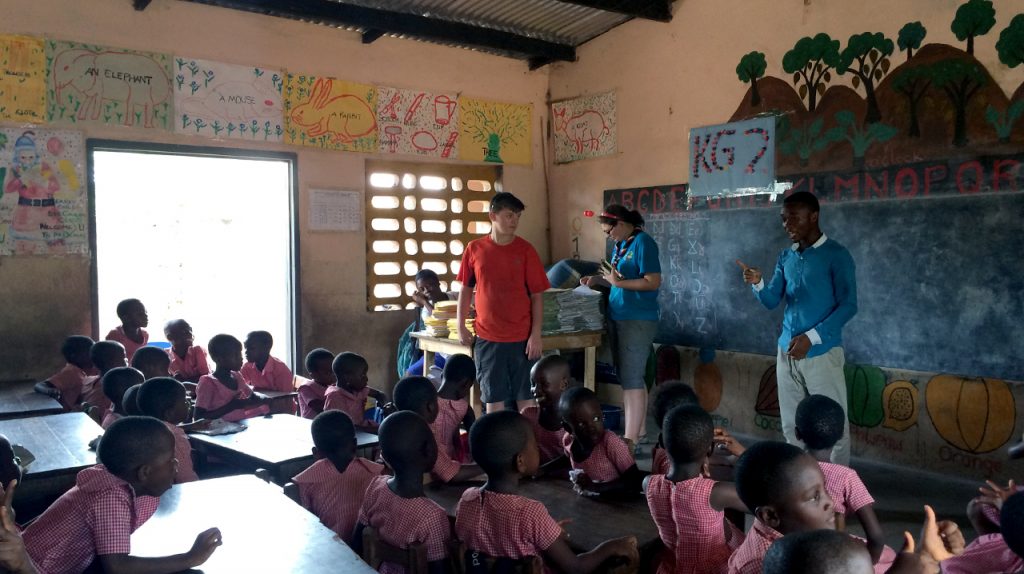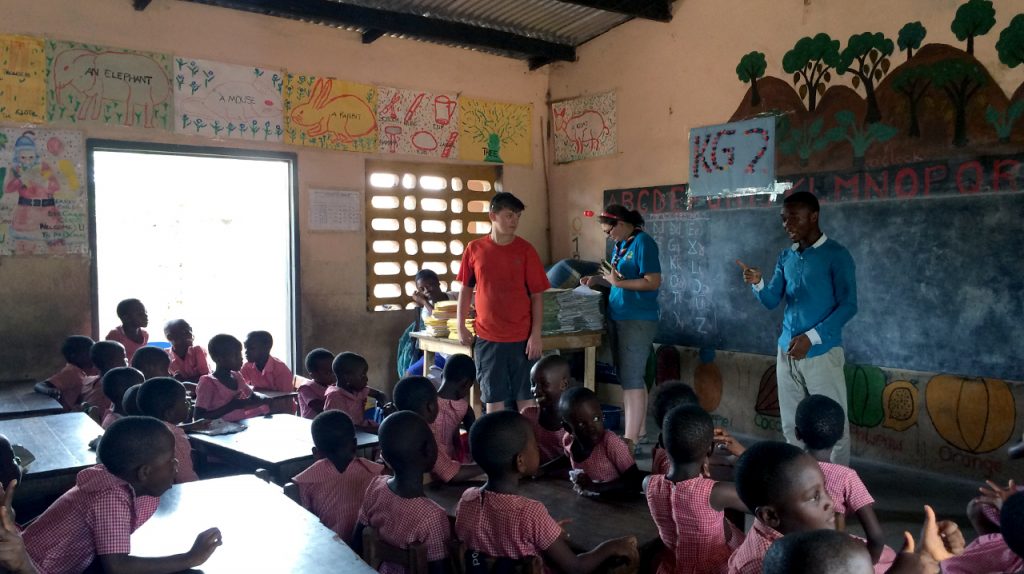
This week, we’re travelling to the rural town of Woe, Ghana, home to our partner school Dedzidi, to learn more about their long-term goal of reducing overcrowding at their school.
Dedzidi School is a privately owned school which was established in 1990 in the rural town of Woe in Ghana. The school provides an education for 430 students between the ages of two and 14, from nursery through to junior high school.

Dedzidi Community School is severely underfunded and receives no funding from the government, and there are not enough classrooms for the ever-increasing number of students who want to go there. In 2014, Dedzidi’s Head Teacher, Elizabeth Alormatu, dreamt of constructing a new classroom block to accommodate the growing number of students at Dedzidi, and African Adventures partnered with the school in the same year to help realise Elizabeth’s ambition.
The need
In the rural Volta region, where Dedzidi Community School is located, many children work alongside their families to bring in an income, instead of attending school.
Elizabeth wanted to encourage more children from the local area to attend school by increasing Dedzidi’s outreach through the creation of additional classroom space, which would allow the school to cater for more students. The new classroom block would also reduce overcrowding in lessons.
With this in mind, we worked together with Dedzidi School to draw up plans for a new, two-storey classroom block with eight classrooms.
The first phase of construction
With funding from African Adventures Foundations, African Adventures volunteers started the project in 2014 by digging foundations and laying the floor for the first storey. Throughout 2016, volunteers helped to mould and lay bricks for the new block, and it was starting to take shape.

In 2017, the ground floor of the new block, comprising four classrooms, was completed. The four new classrooms reduced class sizes from 50 children to 40, improving the quality of education that the school is able to provide. In addition, the new classrooms meant that lessons were no longer taught outside due to a lack of space. This has led to a decrease in the number of classes that are cancelled due to rain or heat.

The second phase of construction
Worked turned to constructing the four classrooms on the second floor. Our volunteers helped the fundis (builders) by moulding bricks, which they then used to construct the shell of the classrooms. They also helped to mix and level concrete to create the classroom floors.

By the end of our summer programme 2024, six classrooms had been completed.

Next steps
The next phase at Dedzidi School is to complete the final two classrooms with funding from African Adventures Foundation and help from our volunteers.
We will continue to monitor and evaluate the progress being made at Dedzidi School, ensuring that overcrowding has been reduced across all classes and report the impact this has had on student academic achievement.
“We have been partnered with Dedzidi for 10 years now and we would love to help them realise their dream of completing this two-storey classroom block. We are committed to sourcing the funding which will allow this work to be finished, ensuring smaller classes and a better learning environment in the process.” Rachel, Fundraising Manager.







